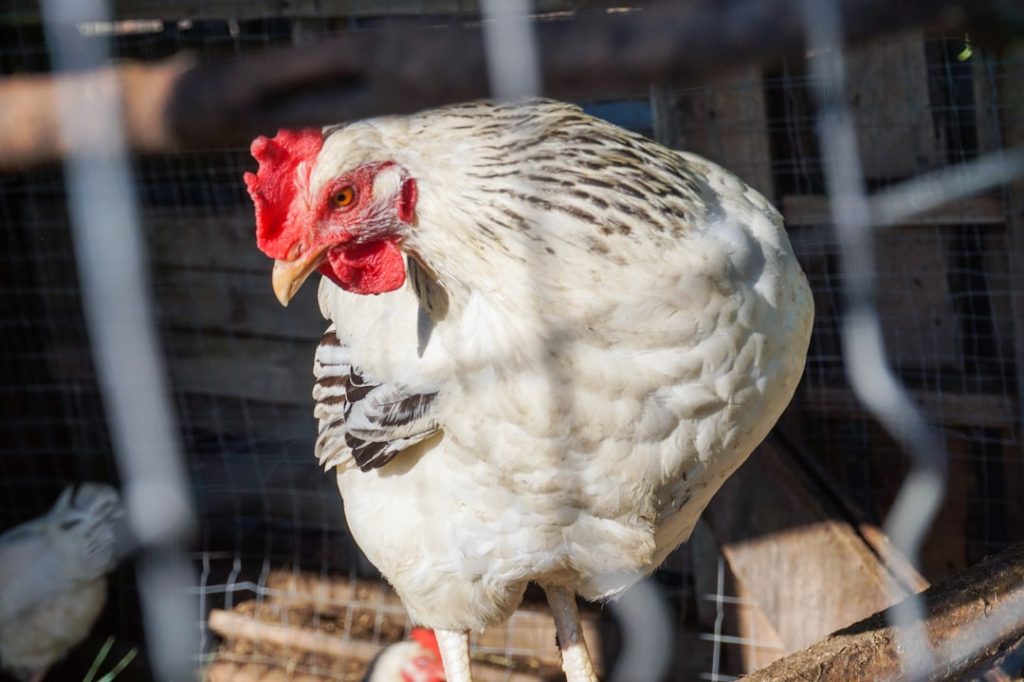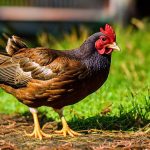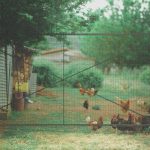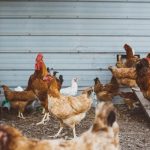When selecting chicken breeds for a backyard flock, several factors should be considered. Climate is a crucial element, as some breeds are better adapted to cold weather, while others thrive in warmer conditions. The intended purpose of the flock is also important, whether it’s for egg production, meat, or both.
Certain breeds are known for their high egg-laying capacity, while others are valued for their meat quality. Temperament is another significant factor. Some chicken breeds are more docile and friendly, making them suitable for families with children, while others may be more aggressive or easily startled.
Available space is also a consideration, as some breeds are better suited to confined areas, while others require more room to roam. The size of the birds is relevant, particularly if meat production is a goal. Larger breeds like Orpingtons or Brahmas are often raised for meat, while smaller breeds such as Leghorns or Easter Eggers are popular for egg production in backyard flocks.
Egg color preferences can also influence breed selection, as different breeds produce eggs in various shades, including brown, white, blue, and green. Ultimately, the ideal breed for a backyard flock depends on the specific needs, preferences, and environmental conditions of the chicken keeper. Thorough research into different breeds is essential to make an informed decision that aligns with one’s lifestyle and objectives.
Table of Contents
- 1 Coop and Run Setup
- 2 Feeding and Nutrition
- 3 Health and Hygiene
- 4 Egg Production
- 5 Behavior and Socialization
- 6 Legal Considerations
- 7 FAQs
- 7.1 What are the basic requirements for keeping chickens?
- 7.2 What should be considered when building a chicken coop?
- 7.3 What should be included in a chicken’s diet?
- 7.4 How can chickens be kept safe from predators?
- 7.5 What are some common health issues in chickens and how can they be prevented?
- 7.6 What are the benefits of keeping chickens?
Key Takeaways
- Consider the climate, space, and purpose of raising chickens when choosing the right breed for your flock
- Provide a secure and spacious coop and run setup to ensure the safety and well-being of your chickens
- Offer a balanced diet with access to fresh water and appropriate supplements for optimal health and nutrition
- Regularly monitor and maintain the cleanliness of the coop and run to prevent diseases and parasites
- Understand the factors that affect egg production such as age, breed, and environmental conditions to maximize yield
- Promote positive behavior and socialization among your flock to minimize aggression and stress
- Familiarize yourself with local regulations and ordinances regarding raising chickens to ensure compliance and avoid legal issues
Coop and Run Setup
Coop Considerations
When it comes to the coop, there are several key factors to consider. Firstly, ensure the coop is spacious enough to comfortably accommodate your flock. A good rule of thumb is to allow 2-3 square feet of space per bird inside the coop and 8-10 square feet per bird in the outdoor run. Additionally, ensure the coop is well-ventilated to prevent moisture buildup and ammonia fumes, which can lead to respiratory issues in your chickens. It’s also essential to provide roosting bars for your chickens to perch on at night and nesting boxes for them to lay their eggs.
Outdoor Run Essentials
When it comes to the outdoor run, it’s vital to provide ample space for your chickens to roam and forage. This promotes physical and mental stimulation for your birds and helps prevent behavioral issues that can arise from confinement. Moreover, ensure the run is secure from predators such as raccoons, foxes, and hawks. This may involve burying hardware cloth around the perimeter of the run to prevent digging and covering the top with netting or wire to prevent aerial attacks.
Enrichment and Safety
Finally, consider providing enrichment items such as dust baths, perches, and even a small garden area for your chickens to explore. By providing a well-designed coop and run setup, you can ensure that your backyard flock has a safe and comfortable environment to thrive in.
Feeding and Nutrition
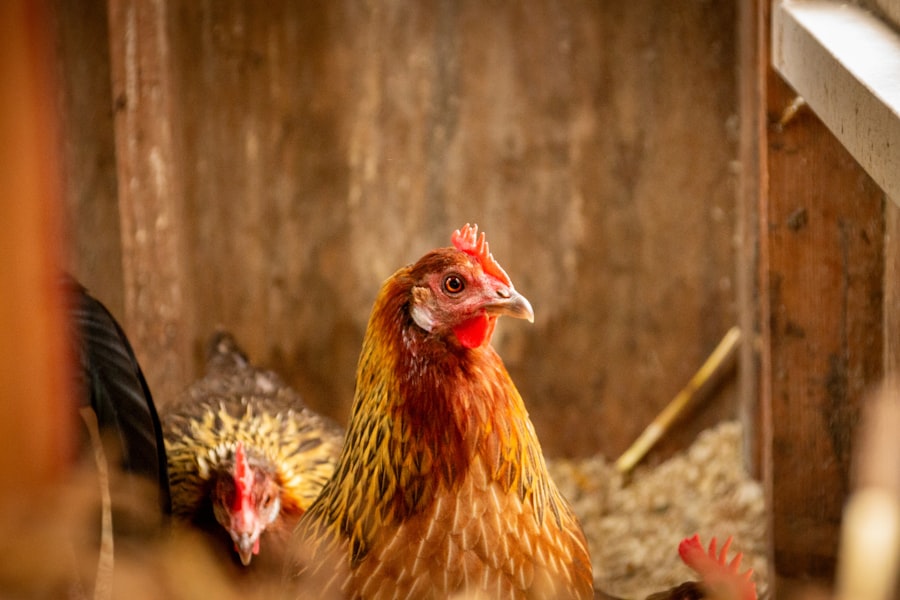
Proper feeding and nutrition are essential for maintaining a healthy and productive backyard flock. When it comes to feeding your chickens, it’s important to provide a balanced diet that meets their nutritional needs. This typically includes a commercial layer feed that is specifically formulated for laying hens.
Layer feed contains the right balance of protein, calcium, and other essential nutrients to support egg production and overall health. Additionally, you can supplement your chickens’ diet with treats such as fruits, vegetables, mealworms, and scratch grains. However, it’s important to offer these treats in moderation and ensure that they don’t make up more than 10% of your chickens’ overall diet.
In addition to providing a balanced diet, it’s important to ensure that your chickens have access to clean water at all times. Chickens can drink a surprising amount of water each day, especially during hot weather or when they are laying eggs. Make sure to regularly clean and refill their waterers to prevent contamination and ensure that your birds stay properly hydrated.
Finally, consider providing access to grit and oyster shell, which help with digestion and provide calcium for strong eggshells. By paying attention to your chickens’ feeding and nutritional needs, you can help ensure that they stay healthy and productive.
Health and Hygiene
Maintaining good health and hygiene practices is essential for keeping a thriving backyard flock. One of the most important aspects of chicken health is disease prevention. This includes practicing good biosecurity measures such as quarantining new birds before introducing them to your existing flock, as well as regularly cleaning and disinfecting your coop and equipment.
Additionally, it’s important to monitor your chickens for signs of illness or injury and seek veterinary care when necessary. Common signs of illness in chickens include lethargy, decreased appetite, respiratory issues, abnormal droppings, or changes in behavior. Another important aspect of maintaining chicken health is parasite control.
External parasites such as mites and lice can cause discomfort and stress for your birds, so it’s important to regularly inspect them for signs of infestation and treat them as needed. Additionally, internal parasites such as worms can impact your chickens’ health and egg production, so consider implementing a regular deworming program as recommended by your veterinarian. Finally, maintaining good hygiene practices in your coop and run is essential for preventing disease and promoting overall health.
This includes regularly cleaning out bedding, removing droppings, and providing proper ventilation to prevent moisture buildup. By prioritizing health and hygiene practices, you can help ensure that your backyard flock stays happy and healthy.
Egg Production
Egg production is often one of the main reasons people choose to keep backyard chickens, so understanding how to maximize egg production is essential for many flock owners. One key factor in egg production is providing a balanced diet that meets your hens’ nutritional needs. This typically includes a commercial layer feed that is specifically formulated for laying hens and provides the right balance of protein, calcium, and other essential nutrients.
Additionally, make sure that your hens have access to clean water at all times, as dehydration can impact egg production. Another important factor in egg production is providing a comfortable and stress-free environment for your hens. This includes ensuring that they have enough space in their coop and run, as well as providing enrichment items such as perches and dust baths.
Additionally, minimizing stressors such as overcrowding or predator threats can help promote consistent egg production. Finally, consider providing supplemental lighting in the winter months to ensure that your hens receive enough daylight hours to continue laying eggs. By paying attention to these factors and providing a supportive environment for your hens, you can help maximize egg production in your backyard flock.
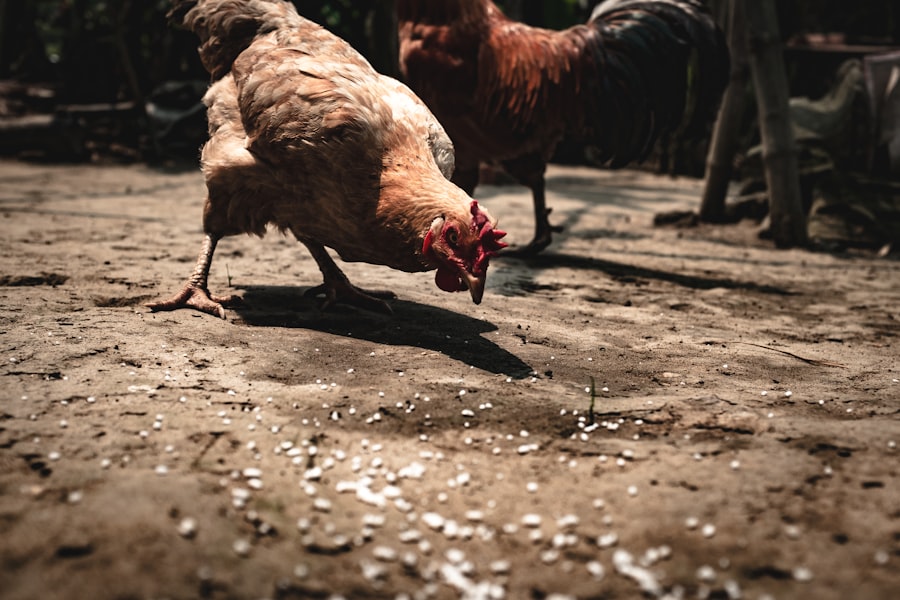
Creating a Supportive Environment
This includes providing enough space in the coop and run for all of your birds to comfortably move around and interact with each other. Additionally, providing enrichment items such as perches, dust baths, and even mirrors can help promote positive social interactions among your flock.
Meeting Their Natural Needs
It’s also important to understand the natural behaviors of chickens in order to provide an environment that meets their needs. For example, chickens are natural foragers that enjoy scratching and pecking at the ground in search of food. Providing opportunities for your birds to engage in these natural behaviors can help prevent boredom and reduce stress within the flock.
Maintaining a Harmonious Flock
Additionally, understanding the dynamics of the pecking order can help you identify and address any potential issues such as bullying or aggression within the flock. By paying attention to chicken behavior and socialization, you can help ensure that your backyard flock remains happy and harmonious.
Legal Considerations
Before starting a backyard flock, it’s important to be aware of any legal considerations that may apply in your area. Some cities or neighborhoods have zoning regulations or homeowners’ association rules that restrict or prohibit keeping chickens on residential properties. It’s important to research these regulations before getting started with a backyard flock to ensure that you are in compliance with local laws.
Additionally, some areas may have specific requirements regarding coop construction or placement, as well as limits on the number of chickens allowed per property. Understanding these regulations can help you avoid potential legal issues down the line and ensure that you are providing a safe and responsible environment for your flock. In some cases, obtaining a permit or license may be required in order to keep chickens on your property.
This may involve submitting an application or paying a fee to obtain the necessary documentation. It’s important to research these requirements in advance and take any necessary steps to ensure that you are in compliance with local regulations. By understanding and adhering to any legal considerations that apply in your area, you can help ensure that you are able to keep a backyard flock responsibly and without running into any legal issues.
In conclusion, keeping a backyard flock can be a rewarding experience that provides fresh eggs, natural pest control, and entertainment for the whole family. By carefully considering factors such as breed selection, coop and run setup, feeding and nutrition, health and hygiene practices, egg production, behavior and socialization, and legal considerations, you can create a thriving environment for your feathered friends. With proper care and attention, you can enjoy the many benefits of keeping chickens while ensuring that they lead happy and healthy lives on your property.
If you’re interested in learning more about keeping chickens, you might also want to check out this article on keeping guinea fowl and whether they can live with chickens. It provides valuable information on raising different types of poultry and how they can coexist.
FAQs
What are the basic requirements for keeping chickens?
Chickens require a secure and predator-proof coop, access to fresh water, a balanced diet of chicken feed, and a suitable outdoor space for foraging and exercise.
What should be considered when building a chicken coop?
When building a chicken coop, it is important to consider the size and ventilation of the coop, the nesting boxes for laying eggs, roosting bars for chickens to sleep on, and easy access for cleaning and maintenance.
What should be included in a chicken’s diet?
A chicken’s diet should consist of a balanced chicken feed that provides essential nutrients, as well as access to grit for digestion and occasional treats such as fruits, vegetables, and mealworms.
How can chickens be kept safe from predators?
Chickens can be kept safe from predators by ensuring that the coop is secure and predator-proof, using fencing to create a safe outdoor space, and providing supervision or using guard animals such as dogs.
What are some common health issues in chickens and how can they be prevented?
Common health issues in chickens include parasites, respiratory infections, and egg-laying problems. These can be prevented by maintaining a clean coop, providing a balanced diet, and regular health checks by a veterinarian.
What are the benefits of keeping chickens?
Keeping chickens can provide a sustainable source of fresh eggs, natural pest control in the garden, and the enjoyment of observing and caring for these unique and entertaining animals.
Meet Walter, the feathered-friend fanatic of Florida! Nestled in the sunshine state, Walter struts through life with his feathered companions, clucking his way to happiness. With a coop that’s fancier than a five-star hotel, he’s the Don Juan of the chicken world. When he’s not teaching his hens to do the cha-cha, you’ll find him in a heated debate with his prized rooster, Sir Clucks-a-Lot. Walter’s poultry passion is no yolk; he’s the sunny-side-up guy you never knew you needed in your flock of friends!

